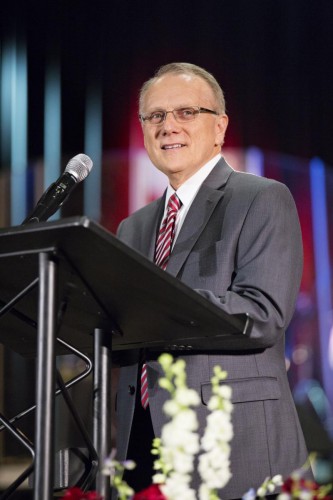EMMANUEL COLLEGE PRESIDENT WHITE STEPS DOWN EARLIER THAN PLANNEDS

Photo courtesy: Emmanuel College
Emmanuel College president Dr. Ron White has stepped down earlier than expected.
In a meeting of the Emmanuel Board of Trustees on May 18, President Ron White informed the board of his need to step down as president effective immediately due to health concerns.
When he announced his retirement plans in March, his intention was to serve until a new president was appointed, however, his doctors have advised him against it.
“Regarding my health, it doesn’t appear to be anything too serious, or at least I hope and pray that it isn’t,” Dr. White said in a message to faculty and staff. “I cannot allow my health to be a distraction in performing my duties nor can I permit my health to continue to deteriorate.”
In the interim, he urged the Board of Trustees to appoint Mr. Greg Hearn as interim CEO, which was unanimously accepted.
Since May 2015, Mr. Hearn has served as the Executive Vice President and CFO of Emmanuel College. Prior to that, he served as Interim CFO from September to May of 2015, and as Emmanuel’s Vice President for Finance from 2005-2009. He simultaneously serves as Chief Executive Officer for Community Services Group, Inc., a position he has held since November 2012.
In response to the transition, Mr. Hearn made the following statement on behalf of the College, “The Emmanuel College family is saddened that President White had to accelerate his retirement, but we fully support his decision to protect his health. He has provided outstanding leadership to the College and the institution has made significant progress in many areas during his tenure. During the ongoing presidential search and transition to a new president, we intend to continue Dr. White’s legacy of progress and increased focus on our mission.”
President White has faithfully served Emmanuel College for a combined 31 years, in various roles, serving the last nine years as President.
During his tenure, Emmanuel witnessed numerous accomplishments including offering fully online undergraduate degrees, achieving level three accreditation which enabled the College to start its first master’s degree programs, a reduction of over $25 million of debt, full membership in the NCAA Division II, and major renovations of Wellons Hall, the John W. Swails Center, and the Aaron Building.
